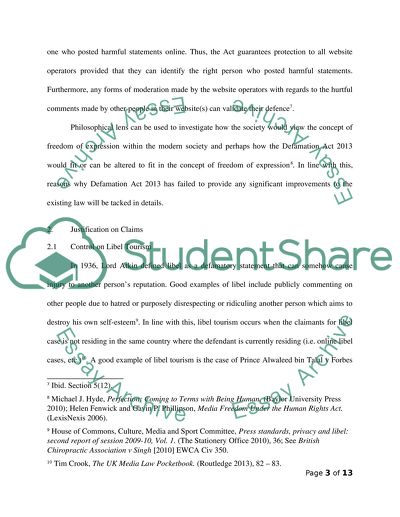Cite this document
(“Improvements to the Law as Introduced by the Defamation Act 2013 Essay”, n.d.)
Retrieved from https://studentshare.org/law/1489203-what-are-the-most-significant-improvements-to-the
Retrieved from https://studentshare.org/law/1489203-what-are-the-most-significant-improvements-to-the
(Improvements to the Law As Introduced by the Defamation Act 2013 Essay)
https://studentshare.org/law/1489203-what-are-the-most-significant-improvements-to-the.
https://studentshare.org/law/1489203-what-are-the-most-significant-improvements-to-the.
“Improvements to the Law As Introduced by the Defamation Act 2013 Essay”, n.d. https://studentshare.org/law/1489203-what-are-the-most-significant-improvements-to-the.


